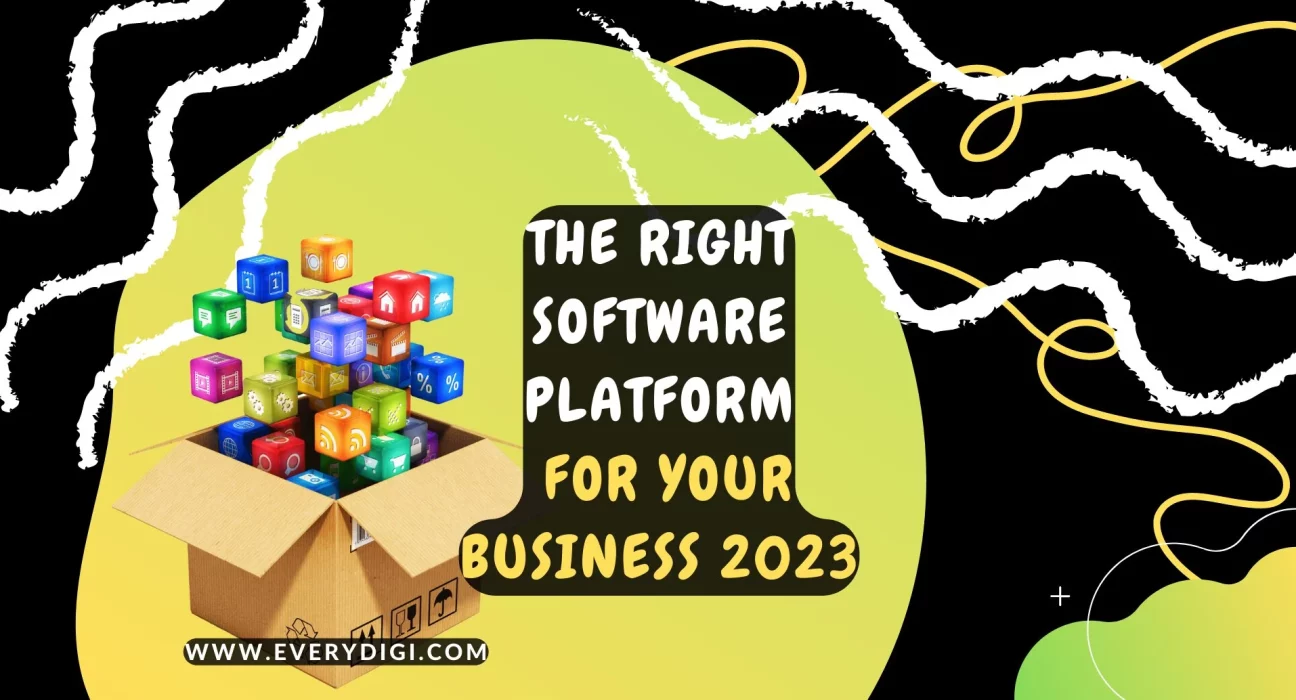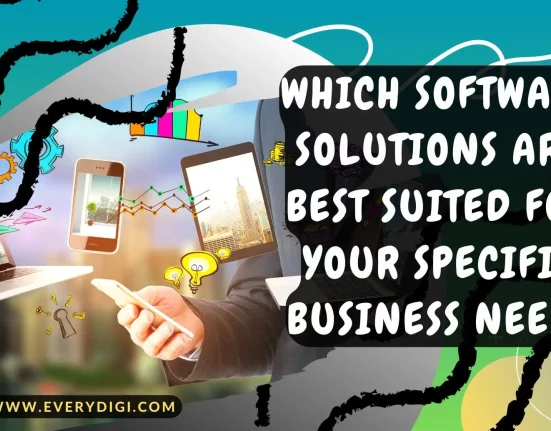Choosing the right software platform for your business is no easy task, especially in 2022.
With a variety of different software options available, it can be difficult to decide which is the best fit for your business needs.
This comprehensive guide will provide you with a detailed overview of the different platforms available and the features they offer, as well as insight into how you can determine the best platform for your business.
With the right insight and knowledge, you will be able to evaluate the different platforms and make an informed decision that is best suited for the specific needs of your business. By the end of this guide, you should have a better understanding of the different platforms and be able to confidently select the one that is most suited for your business.
How do you choose the best software for your business? Also, how do you find new software that work for your business?
Consider the type of software needed.
Before you start your search for a software platform, you should take a step back and consider the type of software you need for your business.
Are you looking for a platform for customer relationship management (CRM), e-commerce, or project management? Do you need a platform with integrated marketing tools or analytics? It’s important to take some time to define your needs so that you can narrow down your search.
Identify the features and capabilities your business needs.
When you’re looking for the right software for your business, you need to make sure that it has the features and capabilities you need to run your business successfully.
Start by making a list of the essential features and capabilities that you need the software to provide. This might include such things as customer management, accounting, sales automation, customer support, marketing automation, e-commerce integration, and more.
Once you have a list of the features and capabilities you need, you can begin to compare different software to determine which one has the features and capabilities that best fit your business needs.
Research the different software options available
Once you’ve narrowed down your list of platforms, it’s time to research the different options available. This can be a daunting task, as there are dozens of pieces of software available, each with a unique set of features and functionality.
To make it easier, start by researching the companies behind each platform. Look at customer reviews, read blog posts, and check out social media accounts.
Doing this research will help you determine the level of customer service and support offered by the platform. Additionally, you should research any potential compatibility issues between the software and other applications you will use.
Lastly, make sure to read the fine print and understand the pricing structure of each platform.
Assess the costs associated with the software
When choosing the right software platform for your business, it’s important to assess the costs associated with it.
Not only do you need to consider the upfront cost of the software and any associated licenses, but you also need to factor in the cost of training, maintenance, upgrades, and potential integration with other systems.
Additionally, you should consider the long-term costs associated with the software, such as scalability, reliability, and any potential downtime. All of these factors can affect the total cost of ownership of the software, so it’s important to weigh them before committing to a particular platform.
Compare the features and costs to make a decision
Once you’ve narrowed down your list of potential platforms to a few finalists, it’s time to compare their features and costs to make a decision. Make sure you read the fine print on the pricing page and review the features each platform has to offer.
Pay close attention to what features are included in the base package, as well as any additional features you’ll have to pay for.
It’s also important to consider if the platform is scalable, meaning it can grow with your business. Also look into customer support, as many platforms offer different levels of service and support. Finally, be sure to read any reviews or customer testimonials to get an idea of how the platform performs in the real world.
With this information in hand, you can compare the features and costs of each platform to determine which is the best fit for your business.
Process management software
If your team doesn’t understand how important process management is, they aren’t likely to be excited about using software for process management.
They might not see why it’s important to build and keep clear process documentation, with clear owners who are in charge of updating and improving the processes they use every day at work.
Making an effort to teach your team about the benefits of process management can go a long way toward making sure you get the most out of your process management software.
One idea is to get your team excited by showing them how much time and manual work they could save by making their processes more efficient.
Showing your team how process management software will make their lives easier is probably the best way to get them to agree that it’s worth it.
What a small business needs
Every business that has done well has grown from the ground up. No matter how eager you are to get a product out on the market, taking the time to build a strong base now will help your business have a better chance of lasting in the long run. Some of the most basic things you might need to start a small business are:
- Research on the market backs up the idea.
- Make a business plan.
- The money and the bank account
- How a business works (corporation, LLC, etc.)
- name under which the business is run.
- identification number of the employer (EIN).
- Place of business
- Permits and licenses
- Insurance policies
choose the best software for small businesses.
A guide to choosing software that allows you to work easily.
These software features are required if you work online.
- project management software, (multiple Tasks management platforms).
- management system.
- Help desk solution
- cloud platforms.
- management tools for social media platforms.
- email marketing software.
- tools to help with customer feedback (the best customer experience).
- accounting software.
- business operations.
To sum up, choosing the right software for your business requires careful consideration.
You must first define your goals and needs, compare the different software solutions on the market, and select the one that best meets your requirements.
Additionally, you should always consider your budget, research customer reviews, and contact the vendors for support. With the right software platform, you can move your business forward and achieve your goals.








